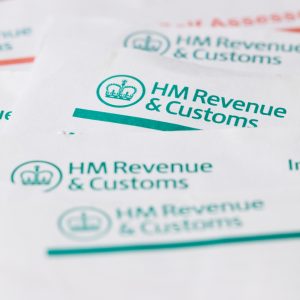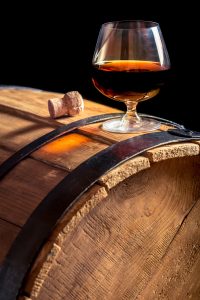Christianah Babajide, one of Lawbore’s journalists, is due to go into the third year of her LLB at The City Law School. An aspiring barrister, Christianah is Communications Officer of City University’s Law Society and is also a guest contributor to Legal Cheek.
 For this piece, Christianah had the privilege of interviewing City Alumnus, Oliver Marre at Old Square Tax Chambers, who tells Lawbore all about the rewards and realities of being a Tax Barrister.
For this piece, Christianah had the privilege of interviewing City Alumnus, Oliver Marre at Old Square Tax Chambers, who tells Lawbore all about the rewards and realities of being a Tax Barrister.
Chambers: Old Square Tax Chambers
Law School: City Law School
Degree: MA, English Language and Literature
Year of call: 2011
Position: Barrister, former journalist
Practice: Tax Law, Trusts Law & Litigation
Inns of Court: Gray’s Inn
Interests: Reading, walking, talking
Fun fact: I used to be a gossip columnist
At what age did you become interested in tax and trusts law?
I had no idea which area of law I wanted to practice in until I started the PgDL. To be honest, pupillage applications have to be made so early, it was something of an educated guess even then; but it turned out to be a lucky educated guess.
You completed your PgDL Law (now the GDL) and BPTC at The City Law School. Can you tell us a bit about your time there?
I had previously worked in the area and it was nice to be back. I found some of my fellow students very bright and good fun.
Which steps did you take to get where you are today?
Having worked in another industry for several years, I decided it was time to retrain. I left the Observer and enrolled on the PgDL course at City. I was lucky enough to secure a pupillage and continued with the Bar Professional Training Course (BPTC) the following year to become a barrister.
What are some of the realities and rewards of being a tax barrister?
The hours are not as long as those at some other parts of the bar; otherwise, I think tax practice is not as different from other areas of law as people might think. We strategize, analyse and argue about words and their meanings, about what really happened v what might appear to have happened, and about how best to look after the clients. The most rewarding part of practice is a good win against a worthy opponent. In that, too, I think the tax bar isn’t unique.
 What is a typical day like for you?
What is a typical day like for you?
My day depends very much on what I happen to be working on at the time. Our litigation can be document-heavy and very driven by law, rather than facts, so an enormous amount of preparation in chambers can go into relatively few days in court.
At other times, I will be concentrating on advisory work, for example on how to deal with HMRC and the Treasury’s regular amending of the tax code, or how to respond to a recent piece of jurisprudence from the CJEU or the English courts/tribunals. I enjoy both sides of the job, particularly when I have the opportunity to work in teams with some excellent colleagues in chambers, barristers from elsewhere, solicitors and accountants.
What is a typical tax problem?
Husband dies without a will. If he’d left his property to Wife, it would be free from inheritance tax (in most cases there is a specific spousal exemption from inheritance tax written into statute). Under the intestacy rules, however, the estate is due to be split between Wife and Children. That means that tax is payable on the Children’s portion at a rate of 40%. As a result, they need to sell the family home. What can be done? Now imagine that all over again, but that Husband died 25 months ago. The answer is likely to be completely different!
What is your most memorable case?
Representing the Government of Gibraltar in a case concerning whether or not it is part of the UK. (This impacts on the correct interpretation of taxing provisions in UK law.)
How is the current debate on tax avoidance reflected in what you see in practice?
There are a lot of historic tax avoidance and mitigation schemes being litigated at present. The key is to remember that you are looking at the law in force at the relevant time, albeit in the light of judicial pronouncements on how that law should now be interpreted. There are also new powers bestowed on HMRC to demand tax up front, before an appeal, in certain avoidance cases; and even – essentially – without an appeal in other avoidance cases. This has brought tax law and public law close together. What are the rights of the individual to keep the discretionary powers of the Executive in check?
 What has been the highlight of your law career so far?
What has been the highlight of your law career so far?
I was once sent 12 bottles of whisky by a client I’d helped on a pro bono basis.
What advice would you give to law students aspiring to become a Tax Barrister?
Apply for mini pupillages at tax sets – and ideally at more than one tax set, as their atmospheres and priorities are not all identical. This is the best way to get an idea of the work. Look, too, at how many of the historic trusts cases are actually revenue law cases. These will give you some idea of the work we do. Read about tax in the papers – but don’t believe it all.
Quick-fire questions:
- If you weren’t a Tax barrister, what would you be?
A farmer, probably on Exmoor.
- Pet Peeve?
It doesn’t snow during winter in London (any more).
- What have you been up to this summer?
I was on holiday with my wife and children in France and Italy.
- Dream holiday destination?
It depends on the day of the week.
More information about Oliver can be found via his Chambers Profile Page and you can connect with him via LinkedIn.
Many thanks to both Oliver and Christianah for giving us a glimpse into Tax law…

